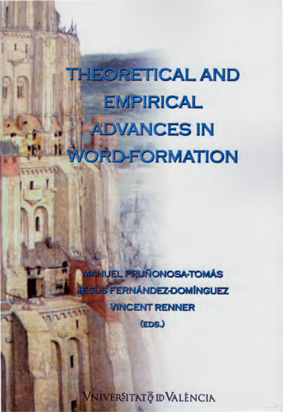Why can one be irritabile ‘irritable’ but can not be *divertibile ‘amuse+able’? On Italian -bile adjectives from psychological verbs
DOI:
https://doi.org/10.7203/qfilologia.18.3277Paraules clau:
suffixation, Aktionsart, psychological verbs, culmination. Resum
Resum
The paper proposes to set out the domain of application of the adjective forming Italian suffix -bile on the basis of the Aktionsart properties of verbs. In particular, -bile adjectives based on object-experiencer psychological verbs are discussed. It is suggested that, beyond actionality, another piece of information – culmination, concerning achievement verbs – is necessary to adequately account for the formation of these Italian adjectives. The presence / absence of the culmination feature allows to distinguish between two types of achievements, here called strong and weak achievements. It is shown that only weak achievements can constitute the domain of application of the suffix.
 Descàrregues
Descàrregues
Descàrregues
Com citar
-
Resum248
-
PDF 105
-
PDF (Español)87
-
PDF94
Número
Secció
Llicència
 Este obra está bajo una licencia de Creative Commons Reconocimiento-NoComercial-SinObraDerivada 4.0 Internacional.
Este obra está bajo una licencia de Creative Commons Reconocimiento-NoComercial-SinObraDerivada 4.0 Internacional.
Tots els documents inclosos a OJS són d'accés lliure i propietat dels seus autors i/o institucions editores, i per tant, qualsevol acte de reproducció, comercialització, comunicació pública o transformació total o parcial necessita el consentiment exprés i escrit d'aquests.
Authors who publish with this journal agree to the following terms:
- Authors retain copyright and grant the journal right of first publication with the work simultaneously licensed under a Creative Commons Attribution License that allows others to share the work with an acknowledgement of the work's authorship and initial publication in this journal.
- Authors are able to enter into separate, additional contractual arrangements for the non-exclusive distribution of the journal's published version of the work (e.g., post it to an institutional repository or publish it in a book), with an acknowledgement of its initial publication in this journal.
- Authors are permitted and encouraged to post their work online (e.g., in institutional repositories or on their website) prior to and during the submission process, as it can lead to productive exchanges, as well as earlier and greater citation of published work (See The Effect of Open Access).



